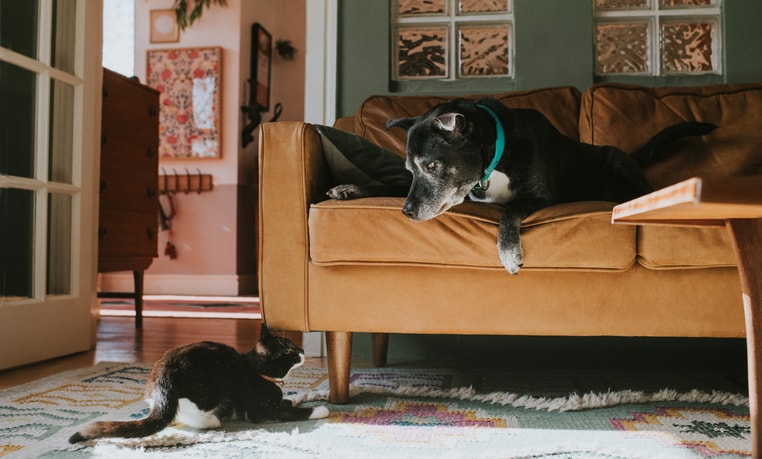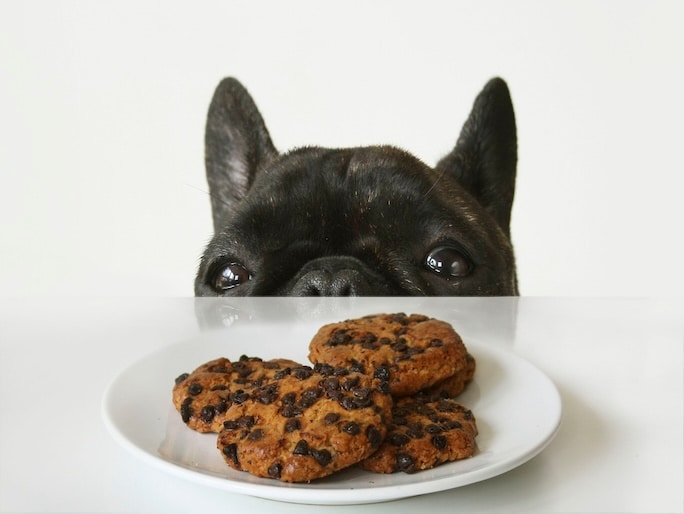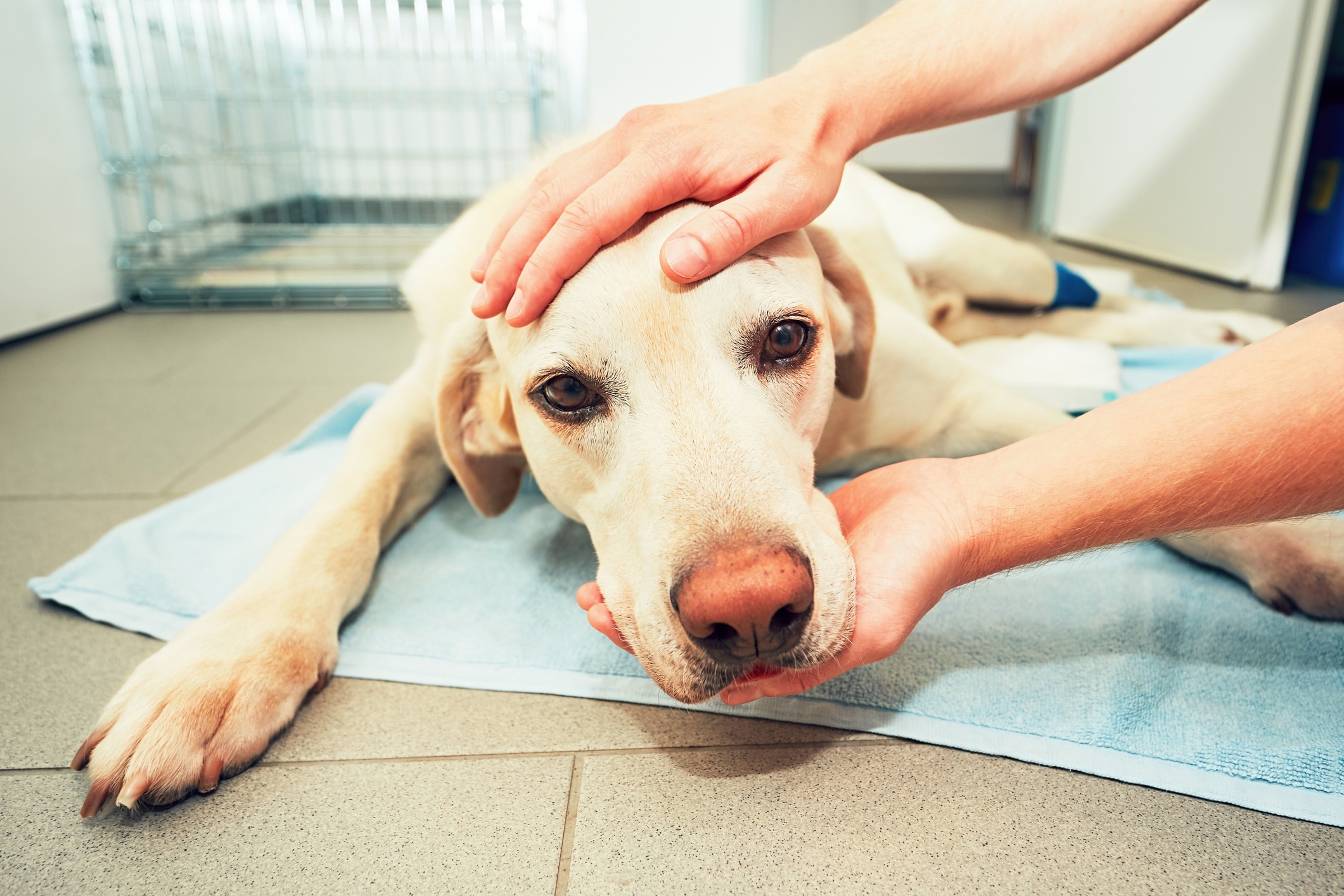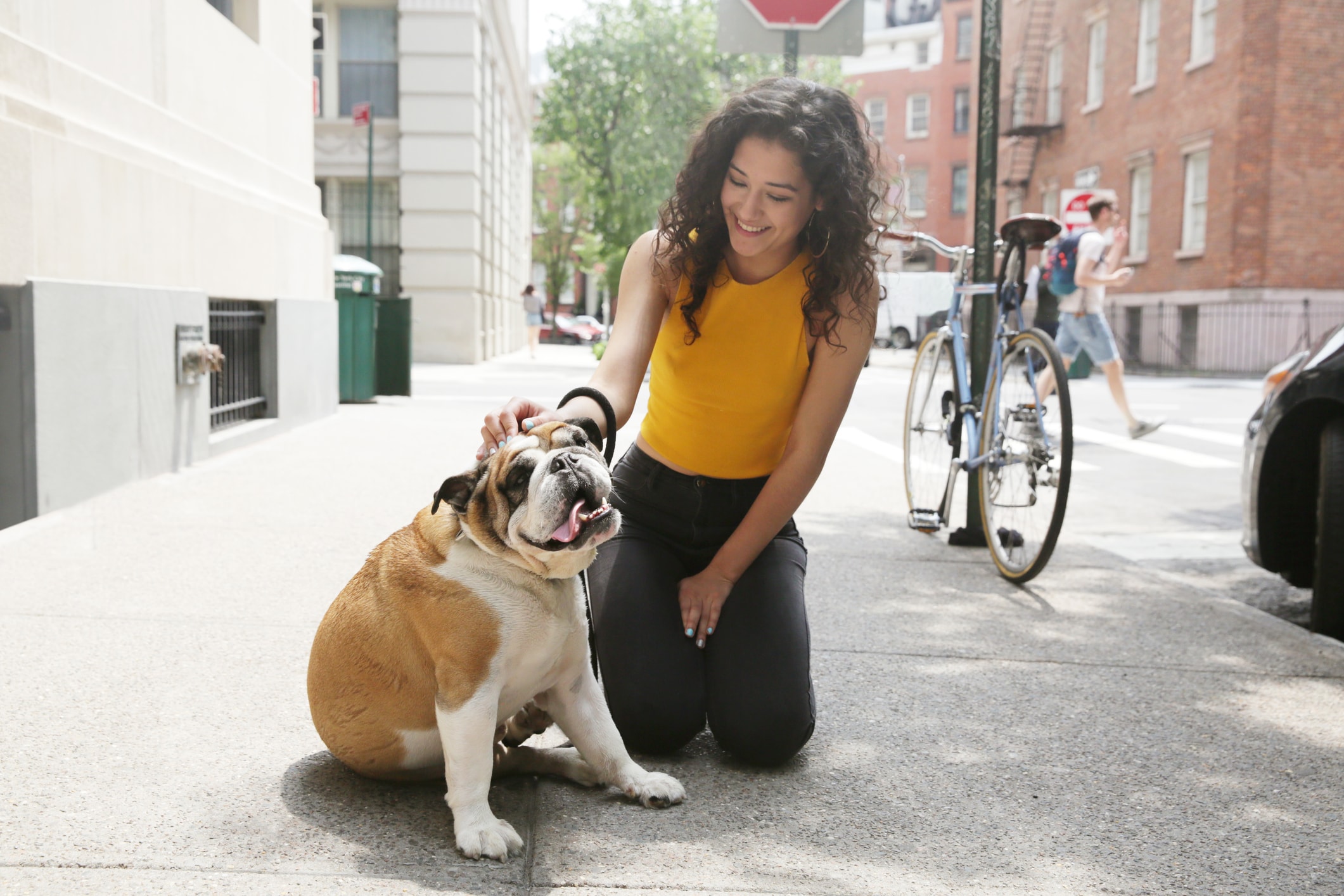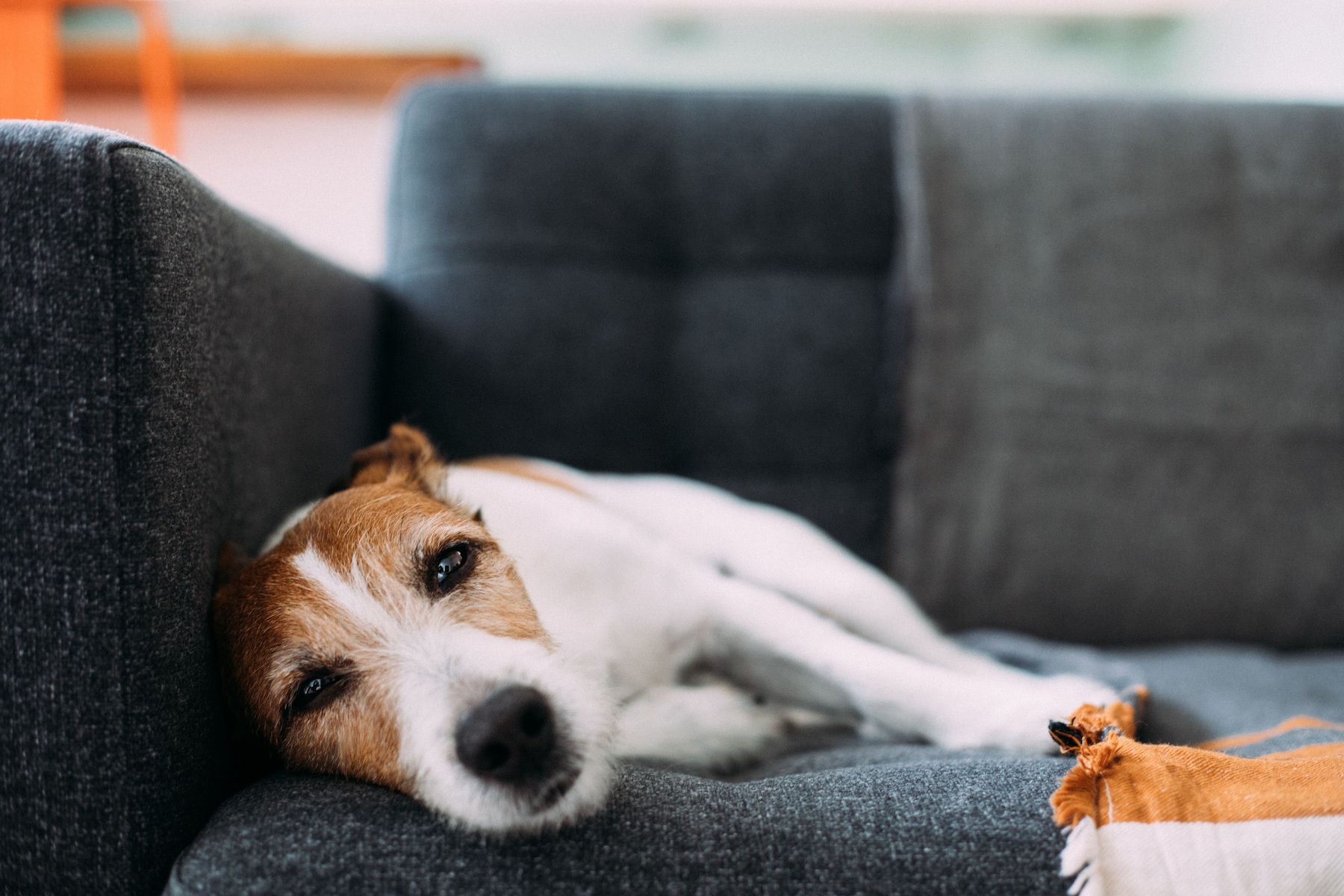You go to clean the litter box, but it looks like someone else got there first. Unfortunately, no, it wasn’t a helpful human family member. Judging by the scattered kitty litter and the smell on your pup’s breath, you come to the disturbing conclusion that your dog has raided the litter box and made a meal of its contents.
“Dogs are known for their sometimes peculiar behaviors, and one that often leaves pet owners perplexed and disgusted is the consumption of cat feces,” says Dr. Joanne Fernandez-Lopez, a veterinarian and director of veterinary affairs at ABCs Puppy Zs. “This behavior, known as interspecific coprophagia, is more common than many realize.”
While eating cat poop is a common behavior in dogs, this habit is not only unhygienic, it can also put your pup’s health at risk. We asked veterinarians why so many dogs can’t resist cat poop, when to worry about your dog’s health and how to stop this behavior from recurring.
Why do dogs eat cat poop?
As you might expect, many dogs tend to eat cat poop simply because they like the taste. Dr. Antje Joslin, veterinarian and veterinary consultant for Dogtopia, explains that cat food is higher in protein and fat than dog food because each species has unique dietary requirements.
A cat’s rich diet results in pungent feces that many dogs find irresistible, even if their nutritional needs are met. “Most dogs who are fed commercially available diets in the U.S. do not have a nutrient deficiency if they are otherwise healthy,” she adds.
Join Care for free
When might dogs eating cat poop point to a health issue?
As with many other sudden changes in your dog’s behavior, an unexplained or increased interest in the cat’s litter box could be a sign of more than a newly acquired taste.
“Certain health issues, such as parasites, diabetes or thyroid problems, can increase a dog’s appetite and lead to coprophagia,” adds Fernandez-Lopez. “Some experts believe that a lack of digestive enzymes may contribute to this behavior, as the dog attempts to obtain these enzymes from partially digested food in the feces.”
Read more:
Can my dog get sick from eating house cat poop?
If you have an indoor cat that’s fully vaccinated and generally healthy, it’s possible, but not likely, for your dog to get sick from eating their poop. “While generally less risky, it can still contain harmful organisms. The added risk here is the potential ingestion of cat litter, which can cause digestive Issues,” says Fernandez-Lopez.
Kitty litter, especially clumping varieties, can cause a gastrointestinal blockage when consumed in high amounts. She also notes that if your cat is taking any medications, your dog could be exposed to it through traces that may still be present in the poop.
What if my dog eats poop they found outside?
Poop from feral or free-roaming cats and wild animals pose more risks to your dog’s health. “Feces from stray cats might carry a higher risk of parasites or diseases due to their outdoor living conditions and hunting behaviors,” says Joslin.
“Feces from other animals can contain harmful pathogens and parasites that can infect dogs who are not properly resilient.”
—Dr. Jeff Feinman, integrative veterinarian
That said, while eating poop is an unsanitary behavior, an isolated incident is unlikely to make your otherwise healthy dog fall ill. “If it’s a one-time occurrence and your dog seems healthy, it’s probably not an emergency,” Joslin adds. “However, if your dog eats cat poop frequently or if your dog shows signs of illness (e.g., vomiting, diarrhea), a vet visit is recommended to rule out underlying issues.”
“Feces from other animals can contain harmful pathogens and parasites that can infect dogs who are not properly resilient,” explains Dr. Jeff Feinman, an integrative veterinarian and leading veterinary researcher.
Can I get sick if my dog licks me after eating cat poop?
The idea of your dog sneaking you a kiss right after they’ve eaten poop sounds revolting enough — but can it actually make you sick? “[Getting sick from your dog’s kisses is] very unlikely — I’ve not seen this in 39 years — but it’s possible. There is a very small risk of zoonotic infections (diseases that can be transmitted from animals to humans) from bacteria like E. coli or parasites,” says Feinman.
Also, it’s worth noting that the idea that a dog’s mouth is cleaner than a human’s is, unfortunately, a myth. A dog’s mouth, regardless of whether or not they eat poop, is home to over 600 types of bacteria, according to the American Kennel Club (AKC). While the risk of disease transmission is relatively low for healthy humans, the AKC adds that immunocompromised individuals are particularly at risk.
How to stop your dog from eating cat poop
Helping your dog kick this icky habit is possible with management and consistent training. It can be challenging because, according to Veterinary Healthcare Associates, eating poop is a self-rewarding behavior. Every time your dog raids the litter box, they’re likely to come away with a tasty “treat,” so they’ll likely repeat the behavior anytime they’re bored, stressed or simply craving something stinky.
Joslin offers the following tips for pet parents to stop this behavior for good:
- Place the litter box where the cat can access it, but the dog can’t, like behind a baby gate.
- Switch to a covered, top-entry style litter box.
- Spring for a self-cleaning kitty litter box so feces is disposed moments after your cat uses it.
- Train your dog to “leave it,” using positive reinforcement.
- Have your dog wear a basket muzzle on walks until they can be trusted to leave animal droppings alone.
“Remember that in many cases, this behavior is rooted in natural instincts or underlying issues that can be addressed.”
—Dr. Joanne Fernandez-Lopez, director of veterinary affairs at ABCs Puppy Zs
Bottom line
Eating cat poop is a common habit in dogs that usually can be attributed to the high fat and protein content in cat food, though a sudden behavioral change may point to a health issue. Pet parents should work towards preventing the behavior by limiting their dog’s access to poop, ensuring their dog has adequate mental stimulation and by using positive reinforcement dog training methods.
“Remember that in many cases, this behavior is rooted in natural instincts or underlying issues that can be addressed,” advises Fernandez-Lopez. “With consistent effort and the right approach, most cases of cat poop consumption can be successfully managed or eliminated, leading to a happier, healthier relationship between you and your pets.”
